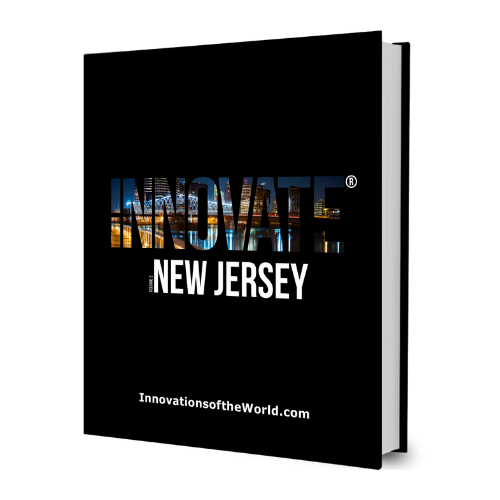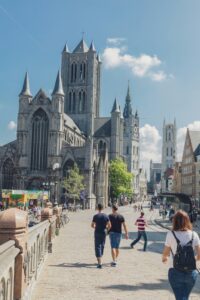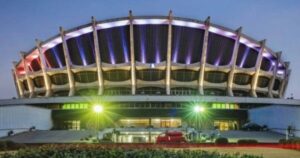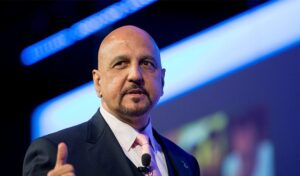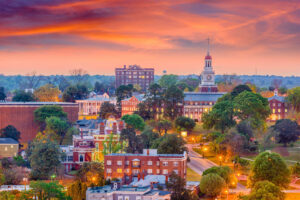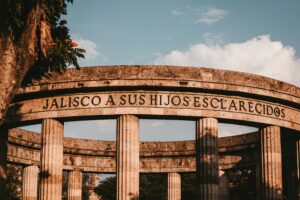Rutgers University in Camden provides groundbreaking, impactful research while offering students truly experiential education in a close-knit, supportive environment. Rutgers University is one of the oldest, most respected institutions of higher learning in the country; Camden is a city known for its determination and resilience. Rutgers–Camden is resolute, relentlessly driving innovation across the region and beyond, while providing incredible opportunities for students to learn by doing.
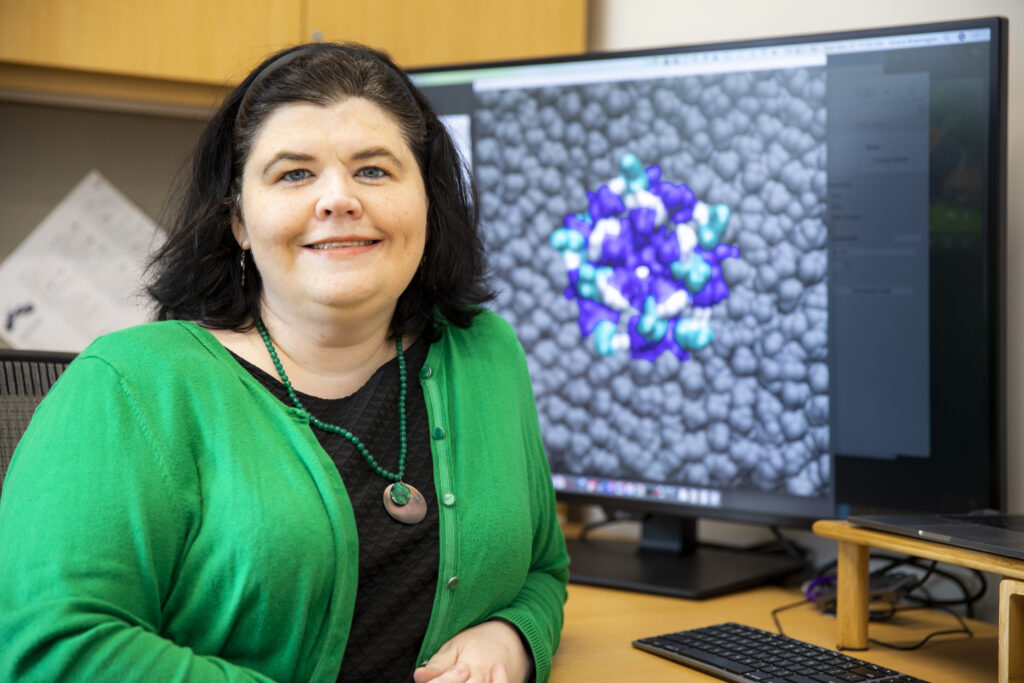
With more than 6,000 undergraduate and graduate students, Rutgers– Camden offers a rigorous Rutgers University education combined with all the benefits of a small, intimate learning environment. Leaders in their respective fields, our faculty are widely published, internationally recognized, and consistently awarded highly competitive research grants. Our students do more than just learn from expert faculty: They work side-by-side with them to uncover solutions to the challenges facing the city, the region, and beyond.
As a leading R2 research institution, Rutgers–Camden provides students unprecedented opportunities for hands-on research. Faculty members are committed to innovative teaching at every level—undergraduate, master’s and doctoral—and inspired by the ideas and opinions of their students. This faculty mentorship, where professors and students share and artificial intelligence to promote collaboration among scientists. Led by Grace Brannigan, associate professor of physics and director of the CCIB, The groundbreaking Codes4Life (C4L) program is supported by a $2 million National Science Foundation Research Traineeship (NRT) grant.
The C4L research team comprises nine scientists trained in computational genomics, evolutionary genomics, computational biophysics, and computational chemistry, who are collaborating on projects focused on the interface between genetics and proteins. Even though DNA and proteins are closely linked within cells, there is a traditional lack of communication between scientists in these two fields, worsened by the shortcomings of currently available software. The C4L program focuses on creating and executing software as a powerful method for sharing data and bridging this disciplinary divide.
The National Science Foundation program advances biological research and develops an effective graduate STEM training model that is efficient, integrated with cutting-edge research, and able to be widely adopted. A principal component of C4L—and a primary reason for the NRT grant—is the program’s use of innovative and systematic approaches to develop a diverse group of 25 Ph.D. students over the course of the project, with an additional 15 Ph.D. and 15 master’s degree students expected. The curriculum includes a mentorship program with industry professionals that will help students develop software that meets and exceeds industry standards.
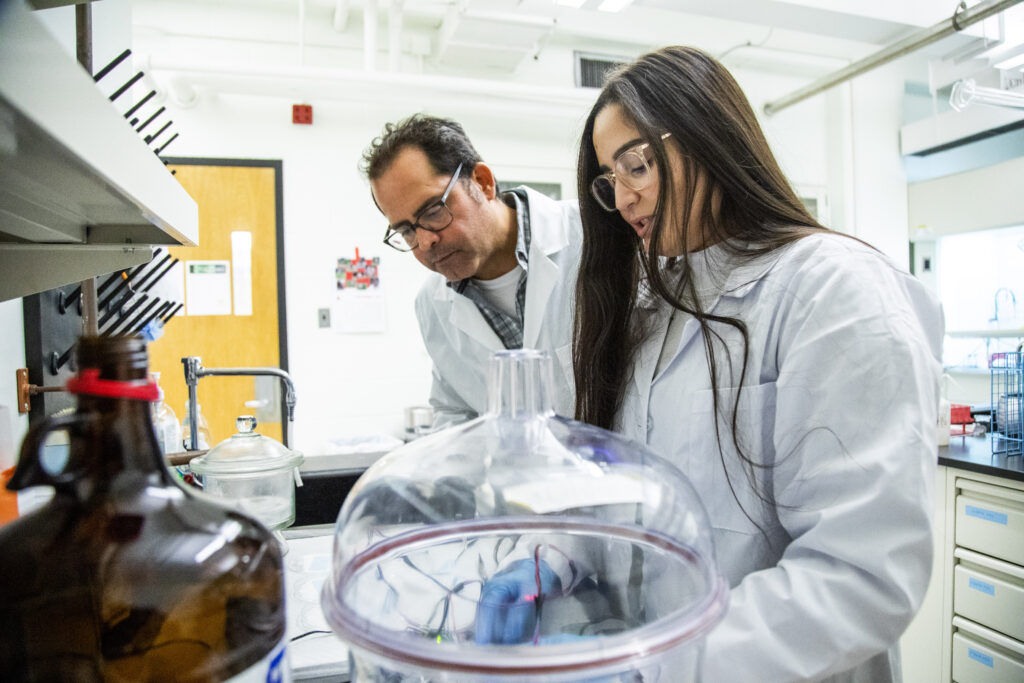
Driving Innovation: Trailblazing Traffic Experiment Reveals Hidden Benefits of Autonomous Vehicles
Rutgers University in Camden partnered with Nissan North America, Toyota, General Motors, the Tennessee Department of Transportation, and several other universities nationwide to conduct the world’s largest traffic experiment in Nov. 2022. Using a fleet of 100 specially equipped Nissan Rogues, Toyota RAV4s, and a Cadillac XT5, researchers tested an AI-powered cruise-control system designed to increase fuel savings and ease traffic by reducing human-caused roadway congestion.
The experiment—which ran on a sensor-filled portion of U.S. Interstate 24 in Tennessee—aimed to replicate results from an earlier, closed-track study where a single AI-equipped vehicle smoothed human-caused traffic congestion, leading to a 40 percent fuel savings.
According to CIRCLES Consortium researchers, just one vehicle equipped with adaptive cruise control (ACC)—which has the ability to speed up and slow down a vehicle while maintaining a safe distance relative to the vehicle in front of it—could change the driving behavior of up to 20 surrounding cars. This in turn causes a positive ripple effect in day-to-day traffic. Benedetto Piccoli, Joseph and Loretta Lopez chair and professor of mathematics, and his colleagues have spent the ensuing months analyzing data collected on the AI-equipped vehicles and their impact on the flow of traffic over the duration of the experiment.
The test was conducted on the recently opened I-24 MOTION testbed, the only real-world automotive testing environment of its kind in the world. Stretching for four miles just southeast of downtown Nashville, the smart highway is equipped with 300 4K digital sensors capable of logging 260,000 vehicle-miles of data per year.
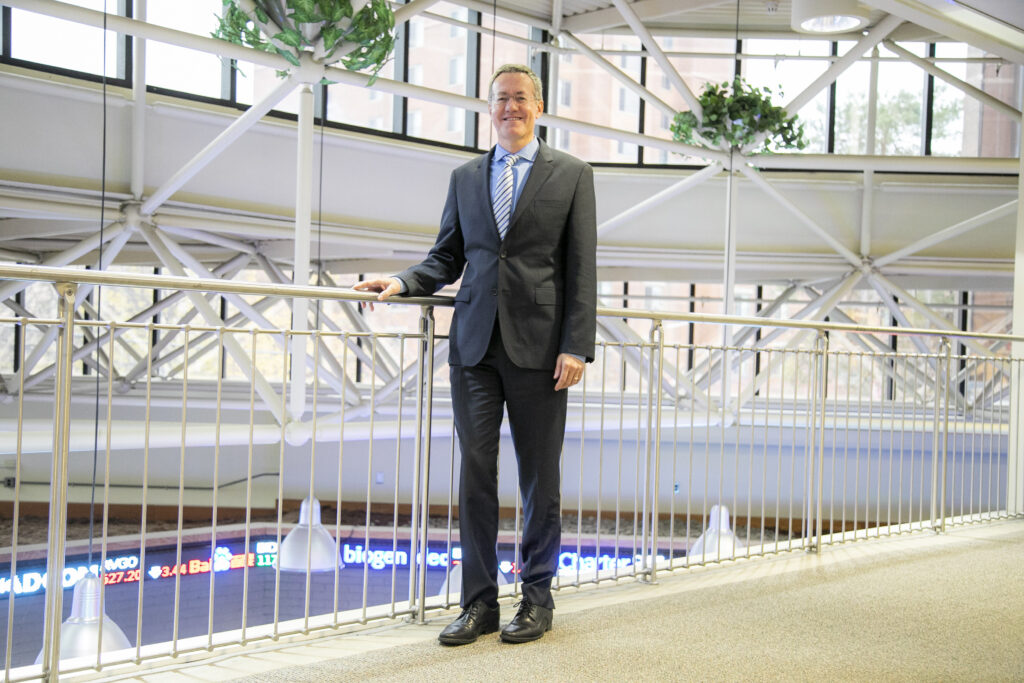
Built to Last: Fostering Breakthroughs in Sustainable Building Materials
Rutgers University in Camden researcher David Salas-de la Cruz has made it his life’s work to replace the petroleum-based materials currently fueling the world economy with natural alternatives. The sustainable materials created in his research lab hold promise in reducing environmental pollutants driving the onset of climate change.
David Salas-de la Cruz, a native of Puerto Rico, is among Rutgers– Camden researchers developing natural substances that can be regenerated from trees, plants, biodegradable waste, algae, and grass. The materials are intended to replace common construction materials such as wood, concrete, and steel. David Salas-de la Cruz’s team is producing a durable, lightweight, naturally based plastic-like material with sugars and softeners that can be folded and formed for architectural and manufacturing use. The project, supported by a five-year National Science Foundation grant, involves a multidisciplinary research team from Rutgers-Camden, the University of Pennsylvania, Princeton University, and Rowan University.
David Salas-de la Cruz’s career in chemistry—a field in which Hispanics comprise just 7.1 percent of the workforce in the United States—is a reminder of the importance of diversity and representation in laboratory science. It is why David Salas-de la Cruz supports and encourages students like Abby Morales. Morales, a Camden-born Ph.D. student who has conducted research in David Salas-de la Cruz’s lab since her junior year of high school. His message to young Hispanic students is simple: with passion and perseverance, you, too, could change beliefs and misconceptions—all while reducing the global carbon footprint.

